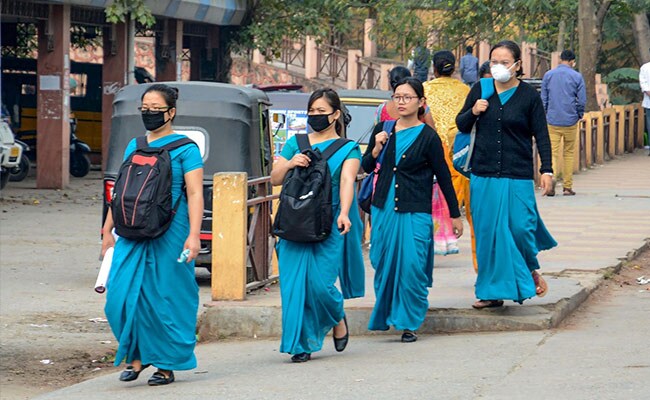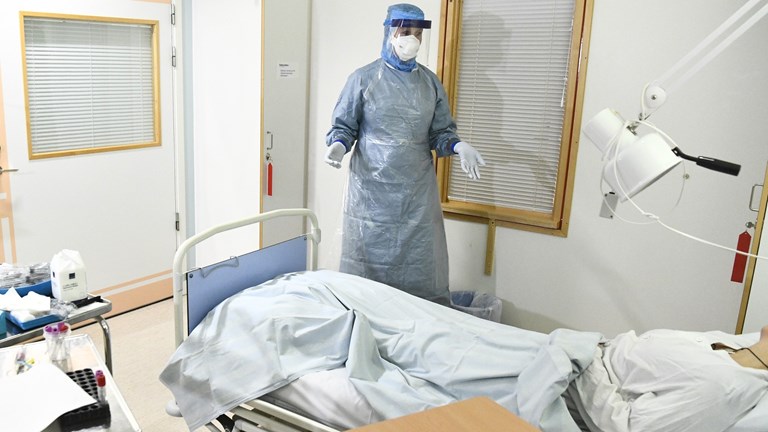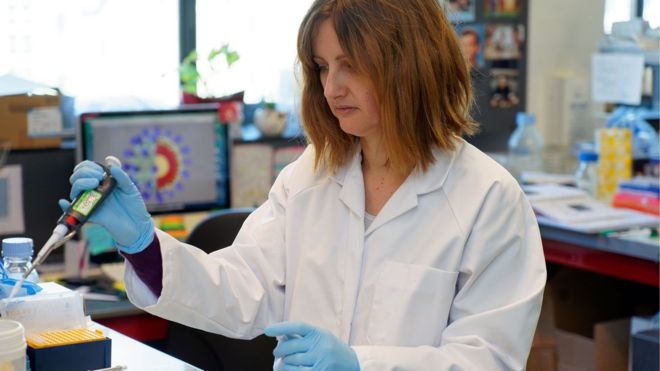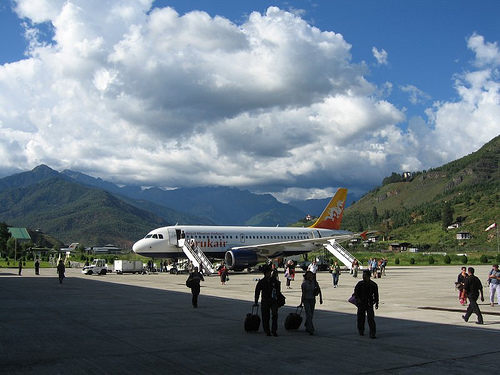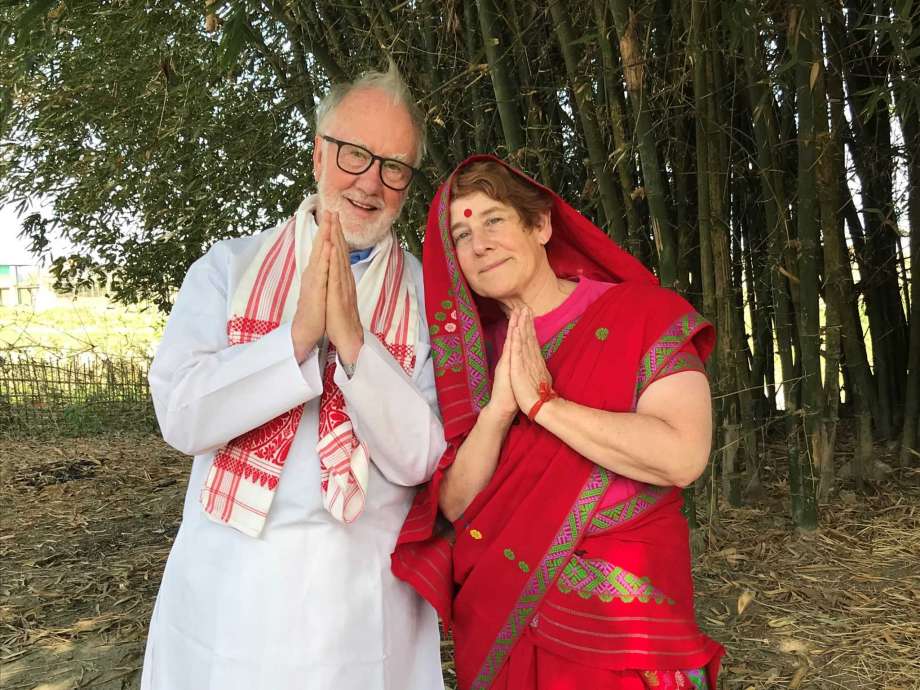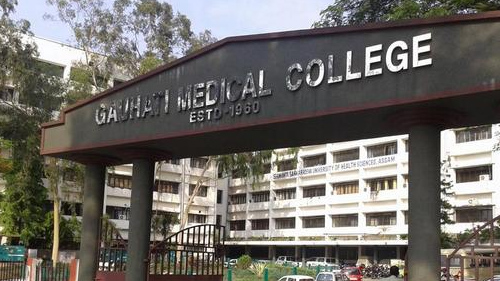NEW DELHI – The 76-year old American tourist arrived at the hospital in Thimphu, the sleepy capital of Bhutan, on a cool day in early March.
His symptoms were perplexing. He complained of stomach trouble and breathlessness, but his vital signs were normal. There was one exception: The level of oxygen in his blood was so low that doctors thought the monitor was malfunctioning. On a hunch, they decided to test him for the novel coronavirus.
Bert Hewitt, a retiree from Maryland with a passion for hiking, would become the first confirmed coronavirus case in Bhutan, a country of 780,000 people nestled in the world’s highest mountains and famous for its pursuit of “gross national happiness.”
Hewitt’s prognosis was not good. He had high blood pressure, and he was a cancer survivor whose spleen had been removed, compromising his immune system. His condition deteriorated rapidly.
In other ways, however, Hewitt would turn out to be exceptionally lucky. His case received personal attention from Bhutan’s beloved king. He was evacuated back to the United States in a Gulfstream jet outfitted with a biocontainment unit. The 8,000-mile journey was so complex that Secretary of State Mike Pompeo later singled it out for praise – especially because the patient was “frankly expected to die.”
Hewitt’s survival is also a source of pride in Bhutan, a young democracy where the monarchy remains revered. The command “from his majesty was to really take care of him,” said Dechen Wangmo, the country’s health minister. “The whole nation was, I think, praying for Bert.”
Hewitt’s odyssey began in mid-February. He and his partner, Sandi Fischer, a 59-year-old psychologist from Los Angeles, planned to travel around India and Bhutan. They took a week-long cruise down the Brahmaputra River in northeastern India, stopping in small villages.
On the last night of the cruise, the staff prepared a sumptuous banquet, but Hewitt’s appetite had vanished. He could not eat a bite.
To reach Bhutan, Hewitt and Fischer flew north toward an unbroken line of Himalayan peaks, then descended into the valley that is home to the country’s only international airport.
Hewitt’s gastrointestinal problems worsened, he said, and he felt breathless. After an outing to the town of Punakha, where the pair mingled with locals at an annual festival, Hewitt could barely walk from the car to a cafe for a cup of tea.
At first, doctors in Thimphu believed Hewitt had a stomach bug. On March 4, he returned to the hospital. Within 24 hours, there was an answer: coronavirus.
For the Bhutanese authorities, it meant the threat they feared had arrived. Health officials rushed to trace Hewitt’s contacts. King Jigme Khesar Namgyel Wangchuck oversaw the process in person, staying through the night, said Dechen Wangmo, the health minister.
By the next morning, 73 direct contacts were moved to quarantine facilities. Another 225 indirect contacts were told to isolate at home. In the northeastern Indian state of Assam, health authorities traced nearly 600 people, including the staff of the river boat.
Hewitt and Fischer were moved to a new wing of Thimphu’s main hospital, which is named after Jigme Dorji Wangchuk, a previous king. The current monarch sent Hewitt a pair of blue silk pajamas and a bedspread.
The king constantly inquired as to the couple’s well-being. In a call with Fischer, he said he hoped to speak with Hewitt, a physicist by training, about black holes one day. “He was lovely and very solicitous and kind,” Fischer said. She also heard from Bhutan’s prime minister, Lotay Tshering, who is himself a doctor. Strangers sent letters and flowers to the hospital.
From his room, Hewitt could see a line of white Buddhist prayer flags fluttering on a ridge. Despite the efforts of a dedicated team of doctors and nurses, he became increasingly ill. The X-rays of his lungs were “horrendous,” Fischer said.
A doctor told Hewitt that the only option was to place him on a ventilator. It would be the last thing he remembered for 10 days.
Back in Maryland, Hewitt’s children were frantic. His elder daughter reached out to the government for help getting her father home. William Walters, deputy chief medical officer for operations at the State Department, approached Phoenix Air, an air charter company in Georgia with expertise in medical evacuations.
The nearest aircraft with a biocontainment unit was in Nairobi. It flew to Bhutan with a crew that included a nurse and a paramedic, a Phoenix executive told a Georgia newspaper. Fischer watched from a hospital window as Hewitt, still on a ventilator, was wheeled into a waiting ambulance. She thought she would never see him again.
The jet stopped in Kolkata, India; Dubai; the Greek island of Crete; Paris; and Newfoundland, Canada, to refuel and take on fresh crew members. None of them were allowed to leave the aircraft during the journey because they were transporting a contagious patient, the Phoenix executive said.
Early on March 14, more than 30 hours after the jet departed Bhutan, it landed in Maryland. Hewitt was transferred to the University of Maryland Medical Center in Baltimore, where his eldest daughter is the director of care management. Hewitt’s daughter and a spokeswoman for the hospital declined to respond to questions.
During the pandemic, the State Department has helped repatriate more than 85,000 Americans. Only 20 have been covid-19 patients. They include 14 passengers from the Diamond Princess cruise ship in Japan and six others who were evacuated via “dedicated biocontainment missions,” said Walters, the State Department medical official.
While each of the six had a “unique mix of challenges, none have matched the evacuation of the U.S. citizen from Bhutan,” he said. The other medical flights were from Nigeria, Djibouti, Chad and the Congo Republic.
Such evacuations cost upward of $200,000, Walters said, and families undertake to reimburse the government for the price of the journey.
Hewitt was on a ventilator for 10 days. His first memory is waking up with someone pressing on his head and calling his name. Hewitt said that a doctor there told him that “whatever they tried in Bhutan probably saved your life.” After about two weeks, he was transferred to a rehabilitation facility.
At first, he was too weak to press the call button to summon a nurse. Yet to his own surprise, he made a swift recovery. He had left Bhutan with nothing except his passport, which was returned to him in a biohazard bag.
Fischer also ultimately tested positive for the virus but remained asymptomatic. She was the only confirmed case traced back to Hewitt: None of their Bhutanese contacts, including their tour guide and driver, tested positive. Nor did the handful of their contacts tested in India. To date, Bhutan has recorded 15 coronavirus cases in total.
Last week, Hewitt was able to complete his former daily exercise regimen: a five-mile walk up and down hills in the woods next to his home. He and Fischer – who managed to return to California after seven weeks in Bhutan – talk every morning.
Hewitt believes he came within a few days of dying. He is at a loss to explain his recovery. “I still think it’s a miracle I survived,” he said.
An optimist by nature, he used to take a cavalier attitude toward things like travel insurance. “I’ll be a bit more careful in the future,” he said, then laughed. Pandemic or no, there aren’t any trips on the horizon: His daughter, he said, has threatened to confiscate his passport.
by Joanna Slater, The Washington Post

